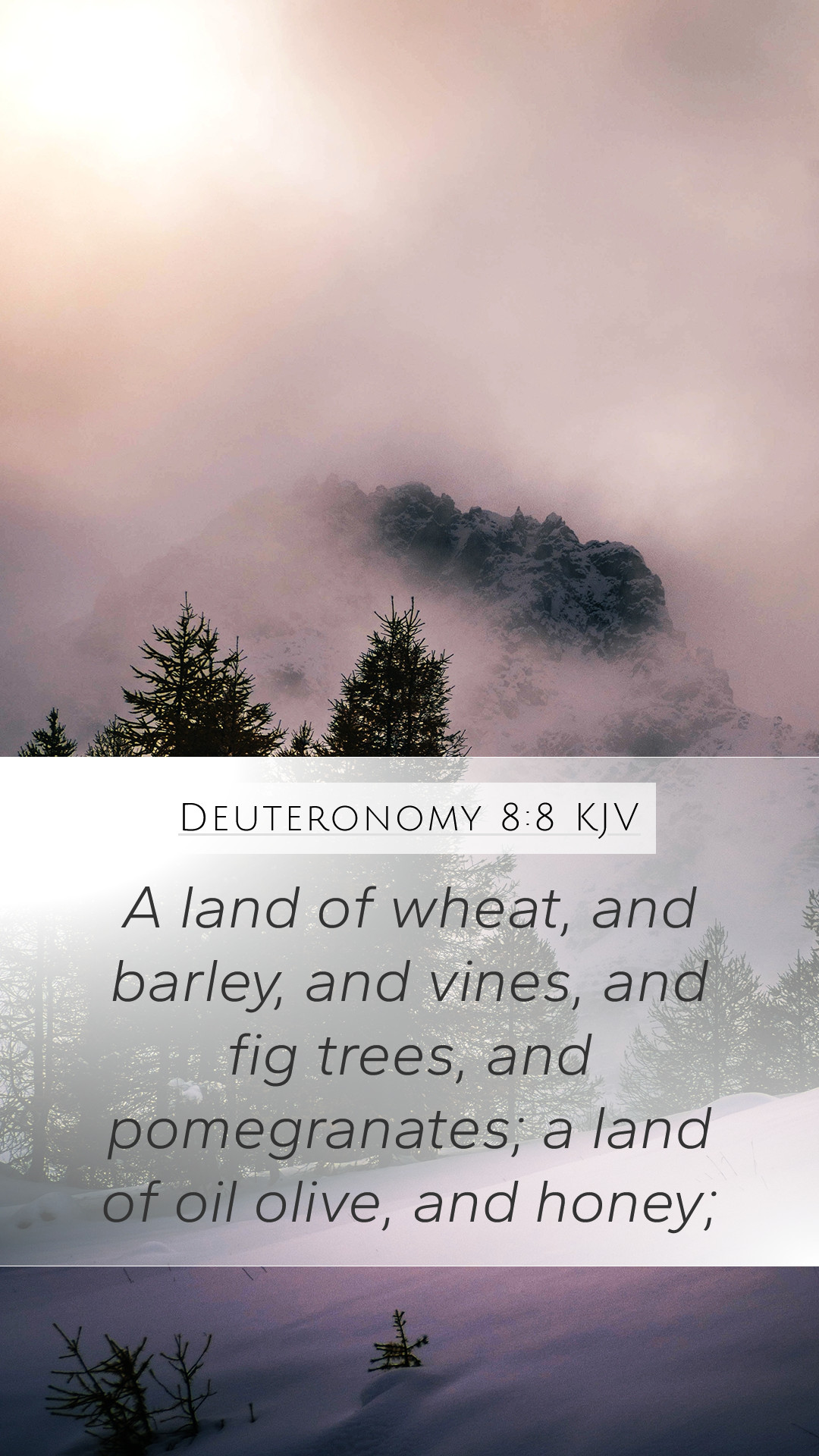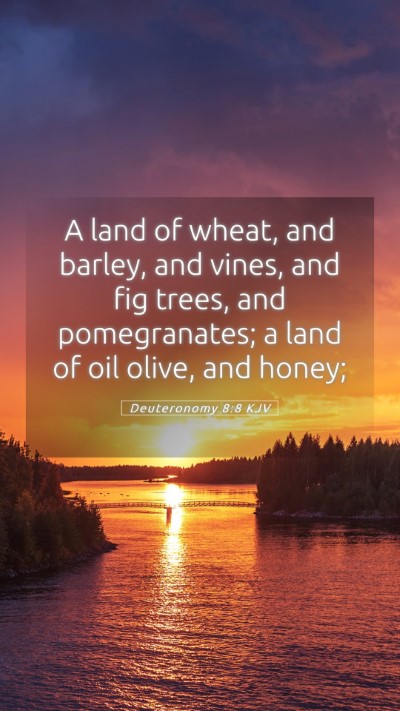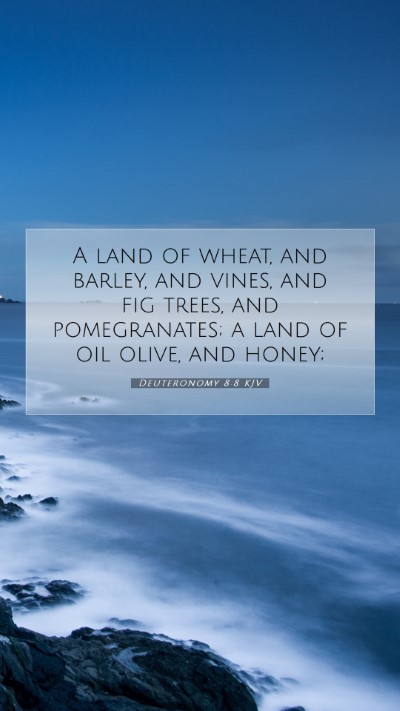Understanding Deuteronomy 8:8
Verse: “A land of wheat, and barley, and vines, and fig trees, and pomegranates; a land of oil olive, and honey.”
Deuteronomy 8:8 serves as a vivid portrayal of the Promised Land, illustrating the abundance and variety of resources that await the Israelites. This verse encapsulates the essence of God’s promise to His people, reflecting both physical and spiritual nourishment.
In-depth Analysis
This analysis combines insights from various public domain commentaries including those by Matthew Henry, Albert Barnes, and Adam Clarke, providing a comprehensive understanding of Scripture.
Matthew Henry's Commentary
According to Matthew Henry, this verse highlights the richness of the land that God was giving to the Israelites. It symbolizes not just the physical bounty but also the spiritual blessings that come from obedience to God. Each element mentioned, such as wheat, barley, and fig trees, signifies different aspects of God’s provision and care for His people.
Albert Barnes' Commentary
Albert Barnes emphasizes the diversity of the resources that God provides in the Promised Land. The mention of various crops and natural products indicates the land’s fertility and God's intention for His people to thrive in it. Barnes points out that this is not merely about physical sustenance but also signifies God’s covenant relationship with Israel, affirming that their faithfulness would yield spiritual and material blessings.
Adam Clarke's Commentary
Adam Clarke elaborates on the agricultural significance of each item mentioned in the verse. He suggests that these specific crops are representative of God’s provision for every need that His people might have. Clarke notes that this abundance is a prelude to the teachings of Jesus regarding reliance on God for daily needs, illustrating that the Israelites were to trust in God's provision both materially and spiritually.
Spiritual and Practical Applications
The richness described in Deuteronomy 8:8 can be applied to contemporary life in many ways:
- Trust in God's Provision: Just as God provided for the Israelites, believers today are reminded to trust in God's abundant provision for their needs, spiritually and materially.
- Recognizing Spiritual Nourishment: The various elements mentioned can be seen as symbolic of the different ways God nourishes His people—through His Word, community, and worship.
- Responsibility and Stewardship: With blessing comes responsibility. Believers are encouraged to be good stewards of the resources God provides, acknowledging that they are gifts meant to be shared with others.
Cross References
Deuteronomy 8:8 can be related to several other biblical passages that emphasize God's provision and promises:
- Exodus 3:8 - God describes the Promised Land as a "land flowing with milk and honey."
- Psalms 37:25 - "I have been young, and now am old; yet have I not seen the righteous forsaken, nor his seed begging bread."
- Matthew 6:33 - "But seek first the kingdom of God and his righteousness, and all these things shall be added to you."
How to Interpret Deuteronomy 8:8
For a deeper understanding of this verse, consider the following methods of study:
- Historical Context: Understanding the background of the Israelites during their time in the wilderness helps illuminate the significance of their future in the Promised Land.
- Comparison with New Testament Teachings: Compare the provisions of the Old Testament with the teachings of Jesus regarding God's care and provision.
- Group Study Insights: Engage with Bible study groups to discuss interpretations and applications of this verse, fostering community learning.
Conclusion
Deuteronomy 8:8 provides a rich reflection of God’s promises, abundant provision, and the call to faithfulness among His people. As believers explore this verse in their personal study or group discussions, they can find comfort and motivation in the assurance that God is committed to providing for their needs.


